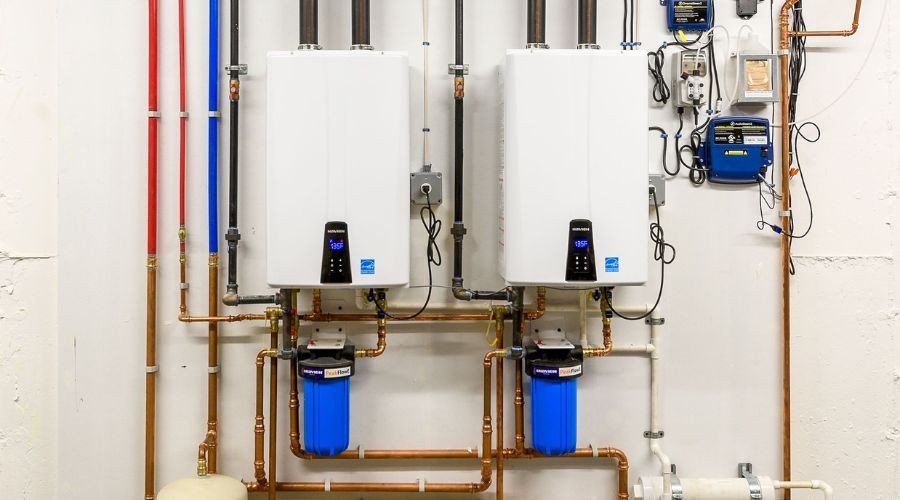When it comes to purchasing, selling, or maintaining a property, building inspections play an indispensable role in ensuring structural integrity, safety, and legal compliance. Despite being one of the most overlooked stages in property transactions or renovations, building inspections provide essential insights into the condition of a building, highlighting existing issues and potential future concerns.
This article delves into the importance of building inspections, the processes involved, common findings, and how choosing the right Building Inspections Company can save time, money, and stress for property owners, buyers, and investors alike.
Understanding Building Inspections
A building inspection is a thorough evaluation of the condition of a structure. It is carried out by a qualified inspector who assesses various components such as the foundation, roof, plumbing, electrical systems, insulation, and more. These inspections are critical not only during property transactions but also as part of ongoing maintenance and compliance with building codes.
The primary goal of a building inspection is to uncover issues that could affect the safety, livability, or value of a property. These findings help property stakeholders make informed decisions, whether they are negotiating a purchase price, budgeting for repairs, or planning renovations.
Types of Building Inspections
There are several types of building inspections, each designed to evaluate specific aspects of a property:
- Pre-Purchase Inspections: Conducted before buying a property, these inspections highlight defects or maintenance issues that may not be visible during a regular viewing.
- Pre-Sale Inspections: Carried out before listing a property for sale, this allows the seller to address problems in advance and present a more attractive offering.
- Construction Stage Inspections: These occur during various phases of new construction to ensure compliance with approved plans and building codes.
- Dilapidation Reports: Used primarily during large construction projects near existing structures, these reports record the pre-existing condition of nearby buildings to prevent disputes over damage claims.
- Maintenance Inspections: Routine checks performed to identify early signs of wear and tear, preventing minor issues from escalating into major repairs.
Each type requires a trained professional, and choosing the right building inspections in Boynton Beach Company is key to obtaining accurate, reliable assessments.
Key Areas Assessed During a Building Inspection
A comprehensive building inspection involves evaluating several areas of the property:
- Structural Integrity
- Cracks in walls or foundations
- Uneven floors or sagging roofs
- Water damage or rot in structural elements
- Roofing and Gutters
- Leaks, rust, or broken tiles
- Blocked or improperly installed gutters
- Poor insulation or ventilation
- Plumbing Systems
- Leaks in pipes or fixtures
- Water pressure and drainage issues
- Condition of hot water systems
- Electrical Systems
- Outdated or unsafe wiring
- Faulty power outlets or lighting
- Non-compliant switchboards
- Pest Infestations
- Termite damage or activity
- Rodent nests or droppings
- Evidence of wood-boring insects
- Interior and Exterior Surfaces
- Paint condition and wall finishes
- Cracks, mold, or moisture intrusion
- Condition of doors, windows, and frames
- Compliance Issues
- Non-compliance with building codes
- Unapproved renovations or extensions
- Safety risks such as staircases without handrails
The Importance of Building Inspections
Investing in a building inspection can prevent future headaches and financial loss. Here’s why inspections are vital:
- Risk Mitigation: Buyers can avoid purchasing a property with hidden structural issues or costly repairs.
- Negotiation Leverage: Sellers and buyers can negotiate based on documented findings, adjusting prices or requesting repairs.
- Insurance and Legal Protection: Inspections can support insurance claims and ensure compliance with local laws.
- Maintenance Planning: Regular inspections provide property owners with a timeline for necessary repairs or upgrades.
- Increased Property Value: A clean bill of health from a reliable inspector can enhance a property’s value and marketability.
What to Expect in a Building Inspection Report
A professional building inspection report is comprehensive and easy to understand. It typically includes:
- A summary of key findings
- Photos of areas inspected
- Notes on major and minor defects
- Safety hazards or code violations
- Recommended repairs or further specialist inspections
Reports should be delivered promptly—usually within 24 to 48 hours—and explained clearly by the inspector if needed.
Choosing the Right Building Inspections Company
Selecting a qualified Building Inspections Company is one of the most important steps in the inspection process. An experienced and accredited company brings industry expertise, objectivity, and legal compliance to every report.
Here are some tips for choosing the right provider:
- Qualifications and Licenses: Ensure inspectors are certified and hold relevant licenses to perform inspections.
- Experience and Specialization: Look for companies with experience in inspecting the type of property you’re dealing with—residential, commercial, or industrial.
- Sample Reports: Review sample reports to assess the detail and clarity of their documentation.
- Insurance Coverage: Confirm the company carries professional indemnity and public liability insurance.
- Reputation and Reviews: Read customer reviews and ask for references to gauge customer satisfaction.
- Clear Pricing Structure: Make sure there are no hidden fees and the services included in the inspection are transparent.
Choosing a reputable Building Inspections Company can be the difference between a successful investment and a costly mistake.
Common Problems Found During Inspections
Even well-maintained properties can have hidden issues. Some of the most common problems discovered during building inspections include:
- Foundation Cracks and Subsidence: These may indicate significant structural issues.
- Water Damage: Stains, mold, or rot caused by poor drainage or leaks.
- Roofing Problems: Broken tiles, inadequate flashing, or poor ventilation.
- Electrical Hazards: Exposed wires, non-compliant installations, or outdated switchboards.
- Pest Infestations: Especially termites, which can silently compromise timber structures.
- Improper Renovations: Unapproved additions or poorly executed DIY work.
Catching these problems early can prevent major repair bills and ensure safety for occupants.
Building Inspections and Property Investment
For investors, building inspections are not just about identifying defects—they are strategic tools for assessing return on investment (ROI).
- Assessing Renovation Costs: Investors can budget more accurately by understanding existing issues.
- Estimating Future Maintenance: Long-term property management becomes easier with a clear inspection report.
- Reducing Risk in Flipping Projects: Flippers can identify red flags that may delay a sale or exceed renovation budgets.
Inspections help investors avoid properties with serious liabilities and instead focus on high-potential assets.
Final Thoughts
Building inspections are essential for any serious property stakeholder. Whether you’re buying your first home, maintaining an income-generating asset, or selling a commercial property, a detailed inspection provides the clarity and confidence needed to move forward.
Partnering with a trusted Building Inspections Company ensures that no stone is left unturned, giving you peace of mind that your investment is sound, safe, and smart. Always remember: the small cost of a professional inspection is negligible compared to the potential losses from undetected property problems.









